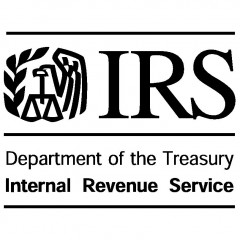Where’s My Refund?
Did you know … This year, the IRS says that it will issue refunds in less than 21 calendar days?! You can check the status of your refund online at the IRS website. Here is the link:...
Quickbooks Training
Want to get the most out of Quickbooks? Join me for a 2-day Quickbooks Training Class. Click Here for Class Details and Registration
Understanding Your IRS Notice or Letter
About Your Notice If you receive a letter or notice from the IRS, it will explain the reason for the correspondence and provide instructions. Many of these letters and notices can be dealt with simply, without having to call or visit an IRS office. The notice you receive covers a very specific issue about your account or tax return. Generally, the IRS will send a notice if it believes you owe additional tax, are due a larger refund, if there is a question about your tax return or a need for additional information. IRS Notice Redesign Currently, the IRS is in the process of redesigning and revising its correspondence with taxpayers for clarity, effectiveness and efficiency. The new format includes a plain language explanation of the nature of the correspondence, clearly states what action the taxpayer must take and presents a clear, clean...
Ten Things to Know About the Child and Dependent Care Credit
IRS Tax Tip 2011-46, March 7. 2011 If you paid someone to care for your child, spouse, or dependent last year, you may be able to claim the Child and Dependent Care Credit on your federal income tax return. Below are 10 things the IRS wants you to know about claiming a credit for child and dependent care expenses. 1. The care must have been provided for one or more qualifying persons. A qualifying person is your dependent child age 12 or younger when the care was provided. Additionally, your spouse and certain other individuals who are physically or mentally incapable of self-care may also be qualifying persons. You must identify each qualifying person on your tax return. 2. The care must have been provided so you – and your spouse if you are married filing jointly – could work or look for work. 3. You – and your spouse if you file jointly – must have earned income from wages, salaries, tips, other taxable employee compensation or net earnings from self-employment. One spouse may be considered as having earned income if they were a full-time student or were physically or mentally unable to care for themselves. 4. The payments for care cannot be paid to your spouse, to the parent of your qualifying person, to someone you can claim as your dependent on your return, or to your child who will not be age 19 or older by the end of the year even if he or she is not your dependent. You must identify the care provider(s) on your tax return. 5. Your filing status must be single, married filing jointly, head of household or qualifying widow(er) with a dependent child. 6. The qualifying person must have lived with you for more than half of 2010. There are exceptions for the birth or death of a qualifying person, or a child of divorced or separated parents. See Publication 503, Child and Dependent Care Expenses. 7. The credit can be up to 35 percent of your qualifying expenses, depending upon your adjusted gross income. 8. For 2010, you may use up to $3,000 of expenses paid in a year for one qualifying individual or $6,000 for two or more qualifying individuals to figure the credit. 9. The qualifying expenses must be reduced by the amount of any dependent care benefits provided by your employer that you deduct or exclude from your income. 10. If you pay someone to come to your home and care for your dependent or spouse, you may be a household employer and may have to withhold and pay social security and Medicare tax and...
Tax Center to Assist Unemployed Taxpayers
IRS Tax Center to Assist Unemployed Taxpayers The “What Ifs” of an Economic Downturn The Internal Revenue Service recognizes that many people may be having difficult times financially. There can be a tax impact to events such as job loss, debt forgiveness or tapping a retirement fund. If your income decreased, you may be newly eligible for certain tax credits, such as the Earned Income Tax Credit. Publications to assist unemployed taxpayers Publication 4128 , Tax Impact of Job Loss Publication 4128(SP), Tax Impact of Job Loss (Spanish version) Publication 4763, Job Related Questions During an Economic Downturn Publication 4763(SP), Job Related Questions During an Economic Downturn (Spanish version) Assistance with filing and paying taxes If you have troubles paying your tax bill, contact the IRS immediately. There are steps we can take to help ease the burden. You should file a tax return even if you are unable to pay so you can avoid additional penalties. Free Tax Help Publication 1546, The Taxpayer Advocate Service at the IRS – How to Get Help with Unresolved Tax Problems Payment Plans, Installment Agreements Offers in Compromise IRS Help for Financially Distressed Taxpayers Starting your own business Some taxpayers may see unemployment as an opportunity to start their own businesses. Starting a Business Self-Employed Individuals Tax Center Small Business Tax Workshops Learn the basics by taking a free Virtual Small Business Tax Workshop. Business.gov Business.gov guides you through the maze of government rules and regulations and provides access to services and resources to help you start, grow, and succeed in business. Health insurance COBRA Health Insurance Workers who lose their jobs may qualify for a 65% reduction in health insurance premiums for up to 15 months. Health Coverage Tax Credit – Trade-affected workers and PBGC payees receive an 80% credit for health insurance premiums. Other Resources Publication 908, Bankruptcy Tax Guide Canceled Debt – Is it Taxable or Not? Publication 4705, Overview: Mortgage Debt Forgiveness Publication 4705(SP), Overview: Mortgage Debt Forgiveness (Spanish version) Bartering Income Bartering for goods or services? Know the...
IRS to Start Processing Delayed Returns on Feb. 14
Additional IRS Information IR-2011-7, Jan. 20, 2011 WASHINGTON — The Internal Revenue Service plans a Feb. 14 start date for processing tax returns delayed by last month’s tax law changes. The IRS reminded taxpayers affected by the delay they can begin preparing their tax returns immediately because many software providers are ready now to accept these returns. Beginning Feb. 14, the IRS will start processing both paper and e-filed returns claiming itemized deductions on Schedule A, the higher education tuition and fees deduction on Form 8917 and the educator expenses deduction. Based on filings last year, about nine million tax returns claimed any of these deductions on returns received by the IRS before Feb. 14. People using e-file for these delayed forms can get a head start because many major software providers have announced they will accept these impacted returns immediately. The software providers will hold onto the returns and then electronically submit them after the IRS systems open on Feb. 14 for the delayed forms. Taxpayers using commercial software can check with their providers for specific instructions. Those who use a paid tax preparer should check with their preparer, who also may be holding returns until the updates are complete. Most other returns, including those claiming the Earned Income Tax Credit (EITC), education tax credits, child tax credit and other popular tax breaks, can be filed as normal, immediately. The IRS needed the extra time to update its systems to accommodate the tax law changes without disrupting other operations tied to the filing season. The delay followed the Dec. 17 enactment of the Tax Relief, Unemployment Insurance Reauthorization, and Job Creation Act of 2010, which extended a number of expiring provisions including the state and local sales tax deduction, higher education tuition and fees deduction and educator expenses...












